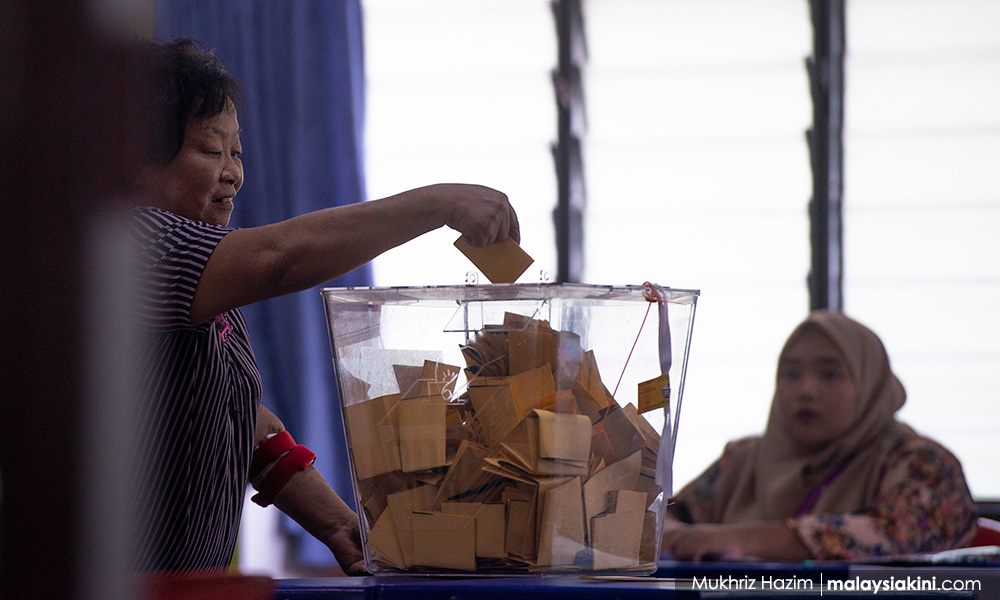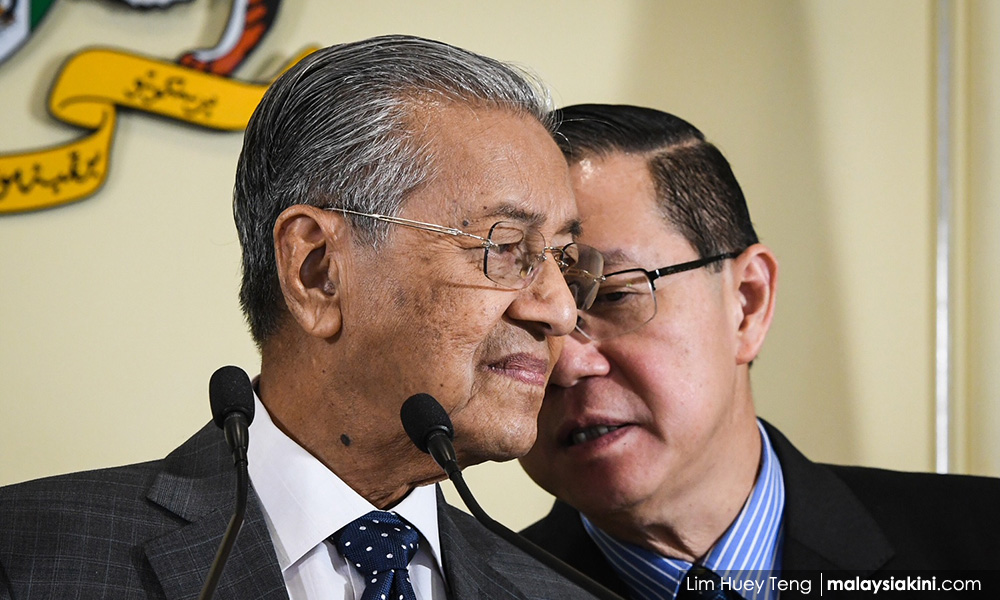In DAP secretary-general Lim Guan Eng’s statement yesterday, he subtly blamed PKR for Pakatan Harapan’s defeat in the Johor election for using its own PKR logo (instead of the Harapan logo) as the major cause, and not the poor voter turnout.
He cannot be more wrong.
The opposition alliance did not use a common logo in both GE12 (2008) and GE13 (2013), and yet it scored spectacular successes in both.
In 2008, it made a historical breakthrough by bringing what DAP adviser Lim Kit Siang then described as a “political tsunami” whereby it captured five states.
And in 2013, it continued its record-breaking streak by winning the popular vote of over 50% of total votes cast.
And even in GE14 (2018) when Pakatan Harapan captured the federal government for the first time in history, this time with a common logo, that common logo happened to be PKR’s party logo, which Guan Eng now attributed PKR’s use of it as the main culprit of Harapan’s defeat.
So, how could Guan Eng possibly justify Harapan’s stunning reversal of its electoral fortune from winning 36 seats in the 56-seat Johor assembly in 2018 to only 12 seats now by simplistically attributing its main cause as PKR using its own logo?
Massive Chinese absenteeism
Guan Eng also claimed that low voter turnout is not the main factor, but then how could he explain his party’s dramatic electoral reversal of losing four seats and suffering a drastic drop of its winning margins (majority votes) in all the remaining 10 seats that it won, while the total votes garnered by his party has plunged 42% from 312,094 in 2018 to a mere 181,455 now (Sin Chew Daily, March 14)?

Keeping in mind that the Chinese had voted monolithically (95%) for Harapan in 2018 and only marginally lower this time, and votes garnered by DAP are made up overwhelmingly of Chinese votes, this drop of DAP votes indicate conclusively that the relatively massive Chinese absenteeism was a major cause of Harapan’s electoral reversal.
I said relatively, because the decline of voter turnout was vastly different between the Malays and the Chinese. While the former declined by 22% (from 85% in 2018 to 66% now), the latter plunged drastically by 52% (from 85% to 41%). These figures were taken from the preliminary analysis by analyst Bridget Welsh.
And keeping in mind that the majority of Malay votes go to Umno or BN, while Chinese votes almost exclusively favour Harapan, such lopsided ethnic absenteeism has played havoc to the electoral fortune of Harapan.
In other words, if the Chinese had turned out to vote as enthusiastically as the Malays, the polling results would have been vastly different.
Hefty loss of Malay votes
But of course, this is not the only major cause of Harapan defeat. The other major factor is Harapan’s hefty loss of Malay votes, which was triggered by Bersatu’s departure from Harapan to team up eventually with PAS under Perikatan Nasional (PN).
And since Guan Eng also alluded to PKR’s non-cooperation as a teammate in Harapan as the “root cause” of Harapan’s electoral setback, may I ask whether Guan Eng knows the true reasons why more than half of the Chinese voters decided not to go to the polls this time, which to me, is a real major “root cause” of Harapan’s heavy losses?
To make things simple. I will go straight to the point without waiting for Guan Eng’s answer.
Most of the Chinese didn’t vote because the entire Chinese community are completely disillusioned by Harapan’s failure to carry out real and meaningful reforms under the autocratic premiership of Dr Mahathir Mohamad.

The latter not only sabotaged Harapan’s reform agenda, but also dishonoured its solemn pledge to pass over the baton to Anwar Ibrahim while meticulously ostracising the latter from his administration.
For such Harapan failure, DAP should take the major blame for its servile stance towards Mahathir’s betrayal, which eventually led to the Sheraton coup that has destabilised the country until today.
Current ‘big tent” unrealistic
As for Guan Eng’s lofty “big tent” strategy to unite all opposition parties except Perikatan Nasional (PN) to face off BN, that strategy does not make much sense, as these minor parties (minus PN) together have only secured a tiny 2% of the total votes cast in the Johor election, while PN alone secured 24% against Harapan’s (plus Muda) 30% and BN’s 43%.
These figures speak for themselves with regards to the current political realities of the country and should offer significant clues to political strategists to plan their moves forward.
To bring the badly needed reforms to the country, Harapan needs to recapture power, which is a daunting task.
But what we need at this moment is certainly not frivolously apportioning blame, but honesty in analysis and pragmatism in strategising for a winning formula without sacrificing our fundamental principles. - Mkini
KIM QUEK is the author of the banned book ‘The March to Putrajaya’, and best-seller ‘Where to, Malaysia?’.
The views expressed here are those of the author/contributor and do not necessarily represent the views of MMKtT.




No comments:
Post a Comment
Note: Only a member of this blog may post a comment.